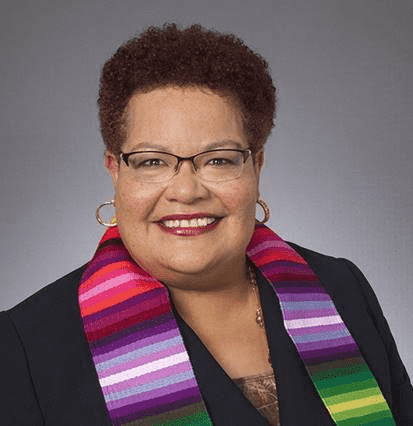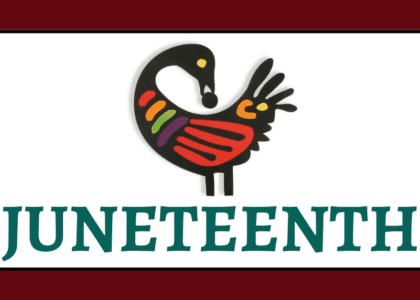By Michelle Nickens
36Now in Joppa there was a disciple whose name was Tabitha, which in Greek is Dorcas. She became ill and died. When Peter arrived, they took him to the room upstairs. All the widows stood beside him, weeping and showing tunics and other clothing that Dorcas had made while she was with them. (from Acts 9)
The Dorcas story from Acts 9 was part of this year’s lectionary reading for Sunday, May 8th. That was also the first Sunday following the leak of Justice Alito’s written opinion that laid the groundwork to overturn Roe v Wade and throw the issue of abortion access to the states. Those of us who support a woman’s right to reproductive choice know what this portends. We’ve watched as various conservative state legislatures began passing bills that would severely restrict access to abortion or outlaw it entirely the minute the final Supreme Court ruling throws it back to the states.
I will not attempt to explain the religious arguments in favor of reproductive choice, which are many. For that, I encourage you to visit the website of the Religious Coalition for Reproductive Choice (RCRC). There you will find information and educational resources in favor of choice from religious, ethical, economic, and healthcare perspectives. But it is a nuanced argument, rather than a sweeping one-size-fits-all series of clobber verses.
I have been a member of RCRC since I entered seminary in 2005. I have been pro-choice for over thirty five years. But for a time in my late teens and early twenties I was opposed to abortion. I was swimming in the stew of conservative Christianity. I worked at a Christian bookstore that was owned by a woman who was very involved in the anti-abortion movement. On display in the store were anti-abortion books, pamphlets, tiny feet lapel pins, and small pink plastic fetus dolls attached to keychains.
I have always had a fire to work against injustice. As a young adult that passion was fierce but unfocused. I was a willing activist in search of a cause. And there before me were the gory photographs of full-term babies in trashbags (the authenticity of which I never questioned until much later), the pamphlets comparing abortion to African American enslavement and the Jewish Holocaust. When the store owner noticed my curiosity, her eyes lit up. Is this young gifted black woman enlisting in the cause? What a boon to the movement! (If you are a smart black person swimming in the waters of white conservative evangelical Christendom, you quickly will be groomed for service and elevated to a public position.) In no time I was being sent out to meet with pastors of several large black churches, armed with little except my righteous passion, my pamphlets and a list of talking points. I was stunned when they didn’t jump on the bandwagon after hearing my presentation. Why didn’t they get on board, I wondered? I left those meetings feeling embarrassed that I had failed my mission, because to my understanding lives were at stake. Despite my poor showing, I was still passionate about the cause.
But then came my Dorcas moment. The Acts text says that they led Peter upstairs where Dorcas lay, where the women were weeping and showing tunics and other clothing that Dorcas had made while she was with them. In my mind, I can almost hear the women telling their stories as they displayed the robes that Dorcas made for them. Women weave our stories into our textiles. When you think of quilting, there is often a story it tells. It could be the illustrations and decorations that tell the story. Or it could be that the act of creating the quilt is its own story. What conversations happened while sewing? What wisdom was shared, what advice was given? What secrets were shared? The quilt is a touchstone to the stories, like the women’s cloaks.
When I reflect on my brief foray into the anti-choice movement, I realize that what I’d overlooked in my righteous myopia were the stories. I had read one-sided books on the topic, but I had only talked to one woman in the anti-choice movement who’d had an abortion, and she deeply regretted it. However, I had never talked to a woman who’d had an abortion and believed she’d made the best choice. What kind of woman would think such a thing? In my conservative naivety, I believed all of the false distortions about women who were pro-choice. They were selfish. They were ungodly. They were blood thirsty, man-hating feminists out to destroy the family. They were ignorant and misled. Forgive them Father, they know not what they do.
But then I became friends with a female Methodist minister whom I greatly respected. She was older and wiser than I was. In response to my anti-abortion spiel, she calmly told me that she’d had an abortion while in college. And she said it was a weighty decision at the time, but she didn’t regret her decision to terminate. She knew that she made the right choice for herself. I experienced a moment of cognitive dissonance. She wasn’t heartless. She wasn’t God hating. She wasn’t ignorant or uninformed. She was a kind, loving minister. And by the time I met her, she’d become the mother of two beautiful sons and had a wonderful life in ministry. Her story knocked me off of my arrogant pedestal of sanctimonious certainty.
A few weeks later, I was sitting in the car with a dear friend who was in her twenties like me. I’ll call her Sharon. Sharon worked in the local theater community as did I. She was smart, funny, artistic, generous and kind. Our conversation had always been easy and effortless. We were kindred spirits. So that night as we sat in the car outside her house I began to prattle on about the failed meetings I’d had with the pastors and how they just didn’t get it. Then I mindlessly continued with my spiel comparing abortion to Black genocide and abortion providers to Nazis.
I felt the energy shift in the car, followed by a strange silence. And then she said, “But Michelle, I had an abortion.” She stared straight out the windshield as tears rolled down her face. She wouldn’t look at me. And I suddenly felt stupid and ashamed. Sharon went on to tell me that she’d gotten pregnant ten years before, when she was just fifteen. She had a life of promise ahead of her. She was on track to get a scholarship to college. So Sharon, together with her parents, and her doctor decided that it was best to terminate the pregnancy.
She cried in my car that night, not because of guilt over the abortion she’d had ten years before, but because her friend had just used a broad brush to paint her as a murderer, a participant in Black genocide, and a willing participant in a holocaust.
She got out of the car, and at that moment, I lost my friend. Her interactions with me from then on were distant and wary. In hindsight, I don’t blame her. How could she remain friends with someone who thought so little of her and believed such terrible things about her? Forgive me Mother, I knew not what I did.
I had condemned all women who opted to have abortions without ever hearing any of their stories. I knew nothing of their life before the abortion or after.
And that is what we must remember today. We must remember that women are not just human incubators. We must acknowledge that every woman who chooses to end a pregnancy has a story. Every woman. We cannot presume that their intentions or motivations are evil or petty, born out of pure selfishness or ignorance. Every woman is a living breathing autonomous individual with history, stories, dreams, ambitions, emotions, gifts, desires, and hang ups.
We cannot make decisions about a woman’s life because we don’t know her story, and every story is different! I imagine that Dorcas’ cloaks were a portal into those ancient women’s unique stories. Women who had no one else. The widows who were trying to make ends meet however they could. The childless ones who were pitied. I like to think that with each cloak, each tunic that they showed to Peter, there was a story that made Dorcas real and a personal story that made each of the women real.
You don’t know their story of women who choose abortion, you don’t know what they’ve been through, you don’t know their burdens. But God does. And God is with them. There are women in our community who have terminated pregnancies. It could be someone sitting in the pews. It could be someone standing in the pulpit. It could even be one of our mothers.
Or it could be a woman who already has five children and is in an abusive marriage. Or a woman who is the first in her family to go to college with plans to become a doctor, maybe even a pediatrician because she loves kids. We often hear the anti-choice argument that says an aborted zygote/fetus might have been the one who will discover a cure for cancer. But might it also be possible that a young woman with a crisis pregnancy might find the cure for cancer if she doesn’t have to drop out of medical school? Or perhaps it is another story, that of a woman who is lost in addiction but has the wherewithal to realize she is in no condition to parent or even give birth to a healthy baby. Or the tragic story of a young girl who is being sexually abused. Life is more complicated than sweeping judgements want to acknowledge.
These days I am sickened when I hear all women who consider abortion described as being cold, selfish, and child hostile. Or easily misled, too stupid to know right from wrong. But that is how women have always been thought of—weak, promiscuous, easily tempted, and needing male authority over them to make decisions and dictate their reproductive choices.
There is so much more I want to say, but I’m still trying to figure out when and where I must enter into this struggle. This topic touches on culture, religious ethics, civil rights, medical science, sexual ethics. What is my starting place? Or yours? Let us begin by listening to the stories of the walking, breathing women among us. Let us honor their reality and their bodily autonomy. Let us commit to honoring the unique circumstances of every woman. Let us commit to hearing them and seeing them as full, dimensional, complex beings. And may every woman understand that she is God’s beloved and that God will be with her in her loneliest times. And may we each in our own manner, stand with her as well.

Rev. Michelle Nickens is the Vice President of American Baptist Churches USA for the 2022-2023 biennium, and serves as the pastor of Washington Plaza Baptist Church in Reston, Va. As a pastor, author, activist, playwright and actor she uses the liberating power of storytelling, drama, and the creative imagination as instruments of healing and empowerment. She has led self empowerment groups for women and children who are survivors of domestic violence, for homeless veterans, and for adults struggling with economic insecurity due to low literacy. For several years, she also served as a teaching fellow and instructor at Union Theological Seminary in the City of New York focusing on domestic violence and child sexual abuse.




Thank you for this insightful and beautiful piece.
Thank you for your thoughtful and moving recounting of your journey, your own story.
Betty Gunz
Thank you, Michelle. That is so beautifully and vulnerably written. You share deep truths.
Sandi John